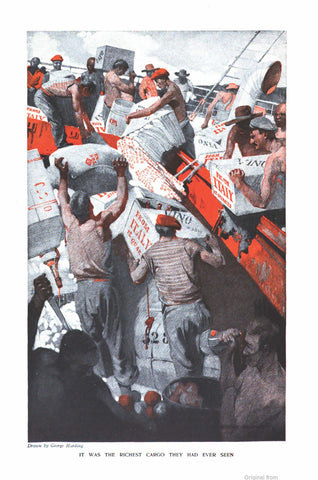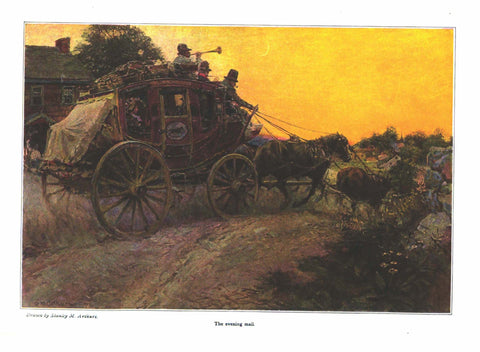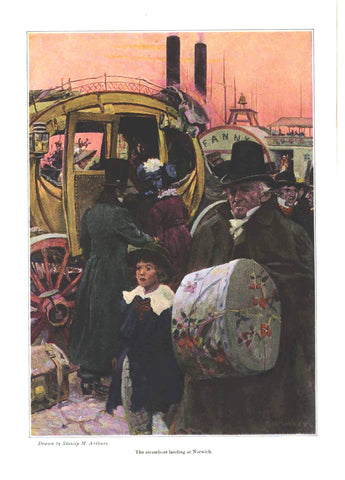Howard Pyle illustration for "The Story of Launcelot" 1907: framed original illustration
$225.00
Head Piece
For The Story of Sir Launcelot and His
New York. Charles Scribner's Sons. 1907.
IMAGE INFORMATION
Image Size: H 9.125” x W 6.625”
Matted & Framed: H 15.125” x W 12.625”
Framed Price: $225.00
Packaging and shipping approximately $25.00
HP wrote and illustrated his four-volume interpretation of the Arthurian legend between 1903 and 1910. In these four beautiful books, the master artist/storyteller excerpted and expanded tales of King Arthur and the Knights of his Roundtable that Sir Thomas Malory had collected during the 15th century and William Caxton had published in 1485.
HP retold these stories in The Book of King Arthur (1903), The Book of the Champions of the Round Table (1905), The Book of Sir Launcelot and his Companions (1907), and The Book of the Grail and the Passing of Arthur (1910).
Being a man of faith and purpose, and being at the height of his powers, Pyle undertook to share with young adults and adults the moral lessons he had learned in the course of his own life. In his concluding comment of his last book, he summarized them: “wit ye that no man can do better than [this] in this world: to bring aid to the afflicted; food to the hungry, and a release from trouble to those who are in anxiety.”
The greatest of Arthur’s knights was Sir Launcelot. HP devoted an entire book to him. By the time it was ready to publish, image reproduction had entered the Age of Color. Pyle wanted to preserve the decorative style that made his set’s first two volumes so wonderful. But he could not resist having some color in this third book. The concession he made to modern technology was to tint some of his decorative plates.
The “head pieces” he added to his third volume were line drawings with plain lines and few details. The enhancements the artist did include were equally spare, being a fold in garments, a flower, a necklace. Pyle colored these ornamental embellishments with heavier washes. In the images’ open spaces and flat fields, he lay pale monochromatic washes. These hints of color did not alter the austere moods the artist strove to convey, but they did add undercurrents of vitality to his glimpses into the long-ago.
Four of the colored head pieces in this book are portraits of Launcelot’s ladies: the Lady Elaine the Fair, the Damsel Lynette, the Lady Layonesse, and the Lady of the Fountain.








